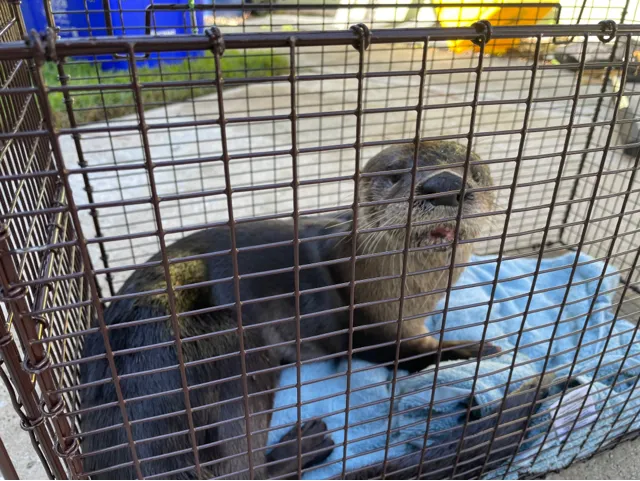UNDERSTANDING RABIES
A Serious and Deadly Threat
It’s easy to get complacent about a potential problem that never seems to materialize into a real threat. Now that threat is very real in Palm Beach County. The newly confirmed case of rabies has been discovered recently in our own backyard of Jupiter, Florida.

Because of this growing threat, it is tremendously important that pet owners have an appreciation of the significance of rabies to human health and safety. Human exposure is usually from contact with rabid or possible rabid domestic animals. The most common wild species affected by rabies are skunks, bats, raccoons, and foxes. However, this time it was an otter. Because control of rabies is so difficult in wildlife, vaccinating our pets primarily controls rabies.
Rabies is a virus that attacks the central nervous system. It cannot be treated with antibiotics or any other medication. Infection with this virus occurs most commonly when infected saliva from a rabid animal is introduced into an open would or abrasion of either the skin or mucous membranes by a bite or a scratch.
There are two forms of rabies: the furious form, and the paralytic or dumb form. In an early stage of the disease, vague changes in temperament may be observed. Pets that are normally affectionate may hide and shun company; others may become unusually attentive and affectionate. Furious rabies is recognized by restlessness, nervousness, and developing viciousness. The animal often utters strange cries and hoarse howls because of partial paralysis of its vocal cords. The eyes are usually staring because of dilation of the pupils. There does not seem to be any real hydrophobia (fear of water) as there is in man. Convulsive seizures often precede the appearance of incoordination, which is the first sign of the final stage of the disease. Rabies is always fatal.
In the dumb form of rabies, paralysis usually appears first in the muscles of the head and neck. The victim cannot chew its food; it cannot swallow water or does so with difficulty. Its lower jaw hangs; it cannot close its mouth. In trying to examine the animal’s mouth for an object that is not there, the animal’s human friends often expose themselves to the disease by scratching their hands on its teeth or getting its saliva into a cut on the hands.
In cats the disease generally takes the furious form and the signs are similar to those in dogs. Rabid cats are very dangerous animals for humans because of their viciousness and quickness of action.
All warm-blooded animals are vulnerable to infection by rabies. This includes livestock, which can transmit the virus to unsuspecting owners who attempt to manually relieve an animal that appears “choked”.
The American Veterinary Medical Association does not recommend keeping wildlife as pets. Since no rabies vaccine is licensed for use in wild animals and since there is no evidence that animal rabies vaccines produce acceptable levels of immunity in wild animals, vaccination is not recommended.
It is imperative that you be sure that your pet’s rabies vaccination is up to date. In most cases, this should be done yearly. This is essential for the protection and the control of rabies. Cats, in particular, are often overlooked when rabies vaccination is considered. It is also a law that all companion animals be vaccinated. Different public health policies have been established to deal with various kinds of exposure. These range from quarantine to immediate euthanasia and depend on the vaccination status of the animal. This is another good reason to be certain pets are vaccinated regularly.
If you see any animal acting strangely or aggressively you should stay away from the animal and contact Palm Beach County Animal Care and Control at 561-233-1200. For wildlife concerns contact the Florida Game and Freshwater Fish Commission via the “FWC Wildlife Alert” app. Download the app onto Apple or Android smartphones or tablets, text 847411 with the keyword “FWC” or call the Wildlife Alert Hotline at 888-404-3922.
Call your veterinarian today to check on the status of your pet’s vaccines or make an appointment for vaccination as soon as possible.


